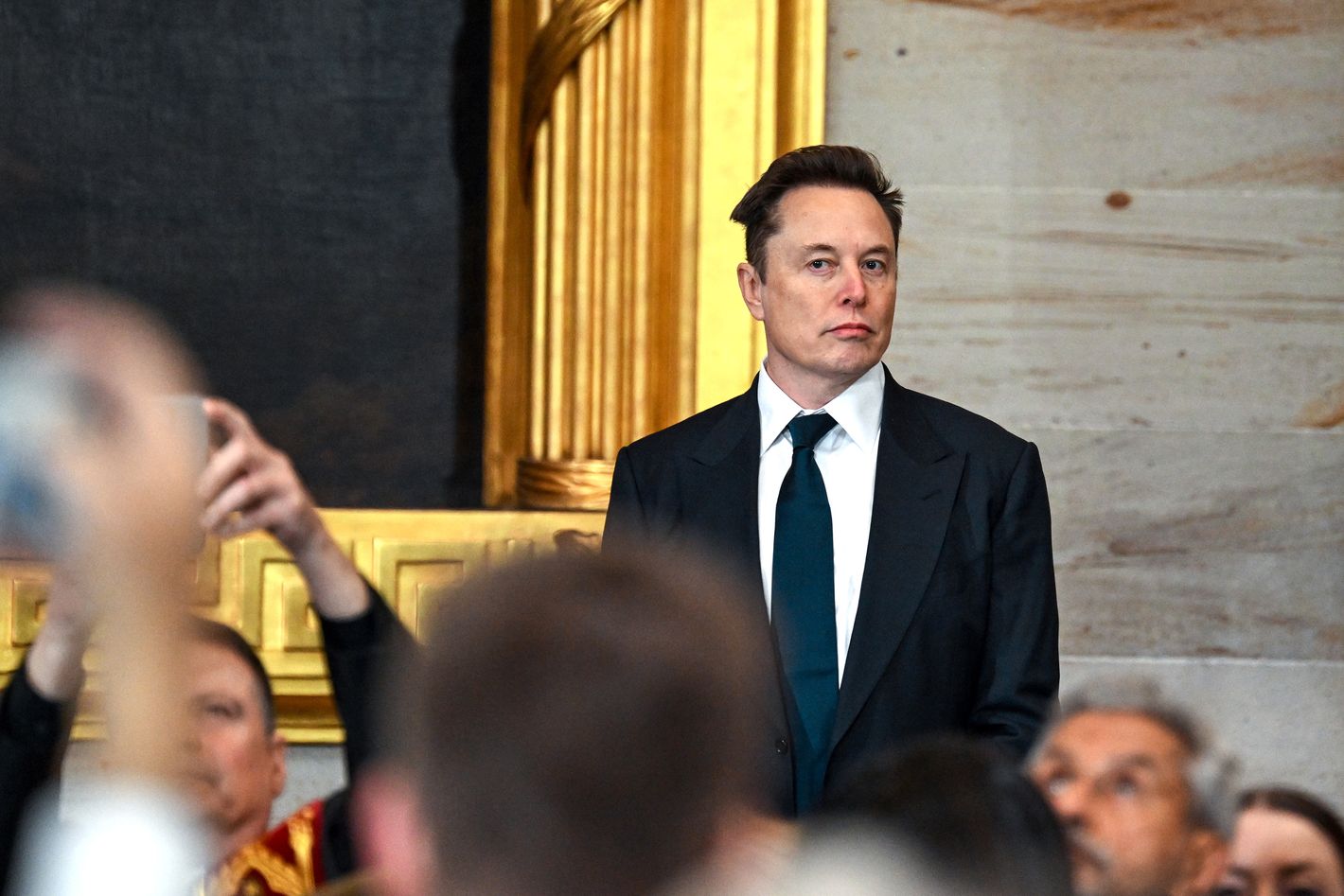Photo: Kenny Holston/Bloomberg/Getty Images
We learned this week that the duumvirate of Elon Musk and Vivek Ramaswamy in charge of the unofficial Department of Government Efficiency had lost one of its co-directors. Politico had a clever way of describing what happened:
Elon Musk has already achieved his first cut at the so-called Department of Government Efficiency: his co-leader Vivek Ramaswamy.
Musk, the tech tycoon and Donald Trump confidant, made it known that he wanted Ramaswamy out of DOGE in recent days, according to three people familiar with Musk’s preferences who, like others for this article, were granted anonymity to discuss them …
Just 69 days after Trump announced the team, Ramaswamy is now leaving DOGE and planning to announce a run for Ohio governor next week. Musk’s ability to ice out Ramaswamy, who for a variety of reasons had irked some Republicans in Trump’s circle, is the latest sign of his influence in the incoming administration.
This wasn’t, however, just a penis-measuring contest between two of the bigger egos in Republican politics with the richest man winning. There was a substantive disagreement between Musk and Ramaswamy that had a major bearing on the power and glory of DOGE. Musk wanted a perch inside the White House and immediate results. Ramaswamy hewed to the original vision of DOGE as an unofficial, private-sector advisory group that would formulate its budget-cutting and regulation-slashing work over two years.
That Musk won this fight was evidenced not only by Ramaswamy’s defenestration but by Donald Trump’s decision to give DOGE the spot on the White House org chart currently held, as the Associated Press pointed out, by the U.S. Digital Service, an Obama-era entity created in the wake of the HealthCare.gov website debacle to “modernize the government’s approach to technology.” Trump’s order suggests a technology focus for DOGE, too, going forward, which could arguably narrow its originally lordly purview, as Business Insider observed:
[I]ts stated mission is to update the federal government’s software and IT systems — a far cry from the vision Musk outlined of cutting up to $2 trillion in annual spending.
“I was disappointed to see the limited scope that DOGE is now responsible for,” said Romina Boccia, the director of budget and entitlements policy at the libertarian Cato Institute. “On the bright side, it may mean that it will be more likely to actually fulfill its mandate because it’s more targeted.”
On the other hand, Musk might well rationalize all sorts of massive changes in the size and structure of the federal government and its workforce as necessary to produce a 21st-century public sector. More to the point, being part of the Office of the White House carries all sorts of advantages for anyone planning a policy revolution, notes Business Insider:
Making the new entity part of the government could allow it to more easily access information across agencies. The agency can also potentially do much of its work behind closed doors, even as some regulations on governmental disclosure will persist.
Perhaps most important, being in the White House would place Musk and DOGE in close proximity to the central nerve center of executive-branch policy-making: the Office of Management and Budget, which not only prepares the president’s budget and other fiscal plans but reviews proposed federal regulations and will almost certainly be the vehicle for Trump’s input into the huge budget-reconciliation bill (or bills; the number is still up in the air) that will implement most of his legislative agenda. As it happens, OMB director-designate Russell Vought, who authored Project 2025’s radical chapter on the design of the executive branch, shares the Musk vision of a radically smaller federal government led by loyal Trump appointees. Assuming he is confirmed to the post he also held during part of the first Trump administration, Vought will arguably be the most powerful figure in the administration. If he’s in an alliance with Musk and his vast troll army of social-media influencers, and Trump imposes their will on Congress, we could be looking at the most audacious redirection of federal policies and resources since the 1960s.
So it’s possible DOGE under Musk’s unified direction could go small and narrow by focusing on IT systems, or could go big and scary by fulfilling its original mission of turning Washington upside down. If Musk and Vought begin eating lunch together often, look out!

